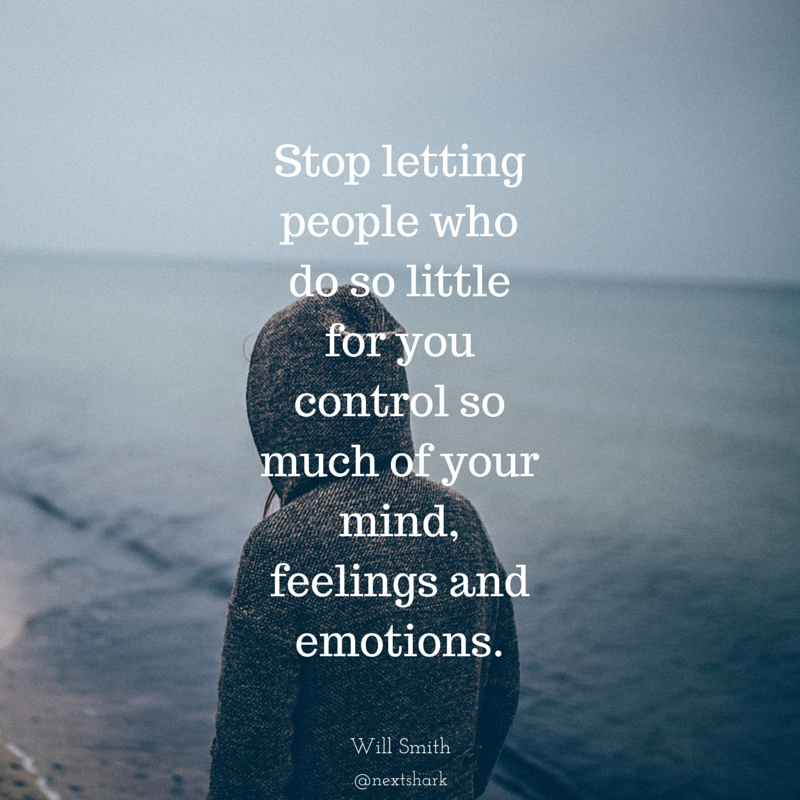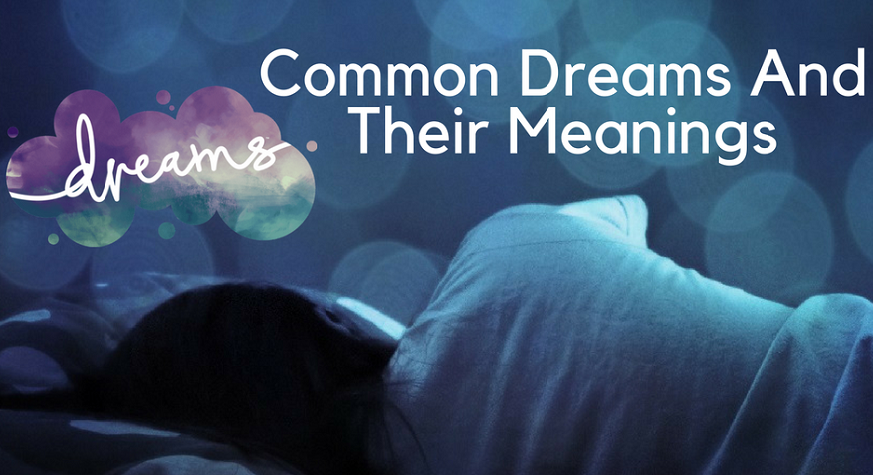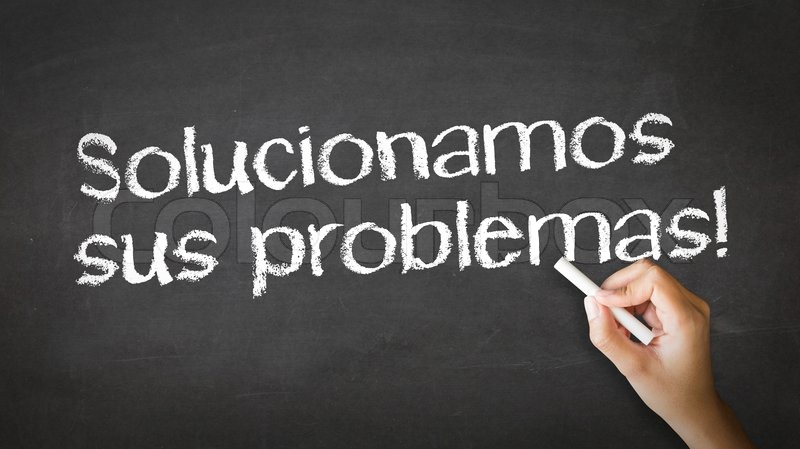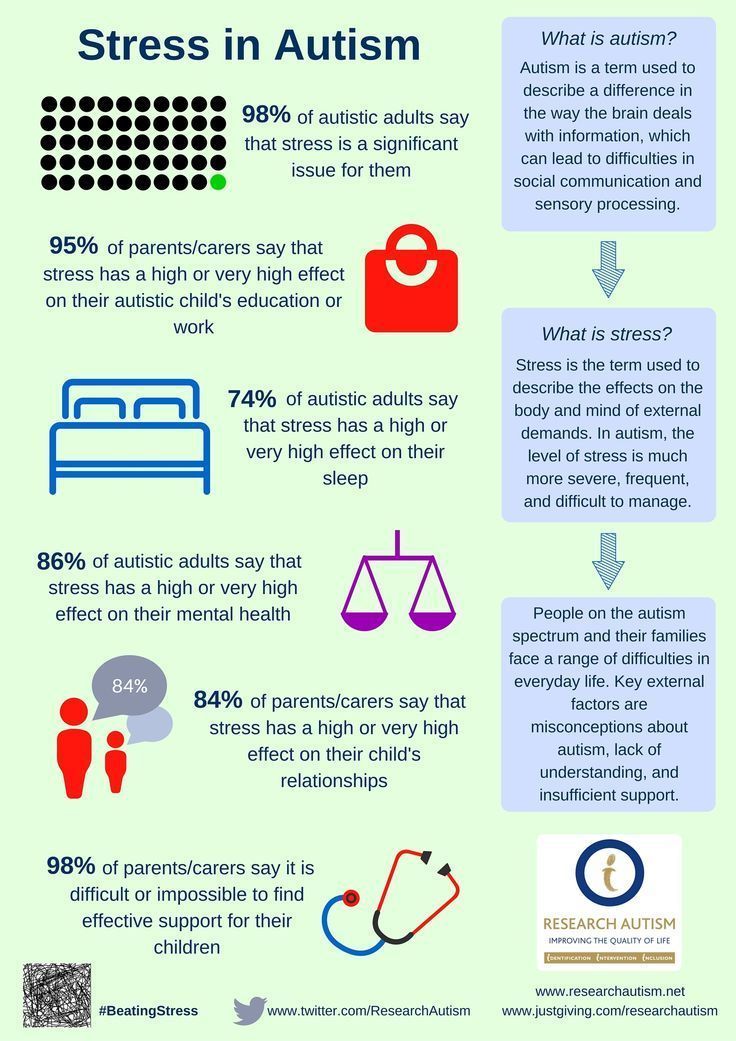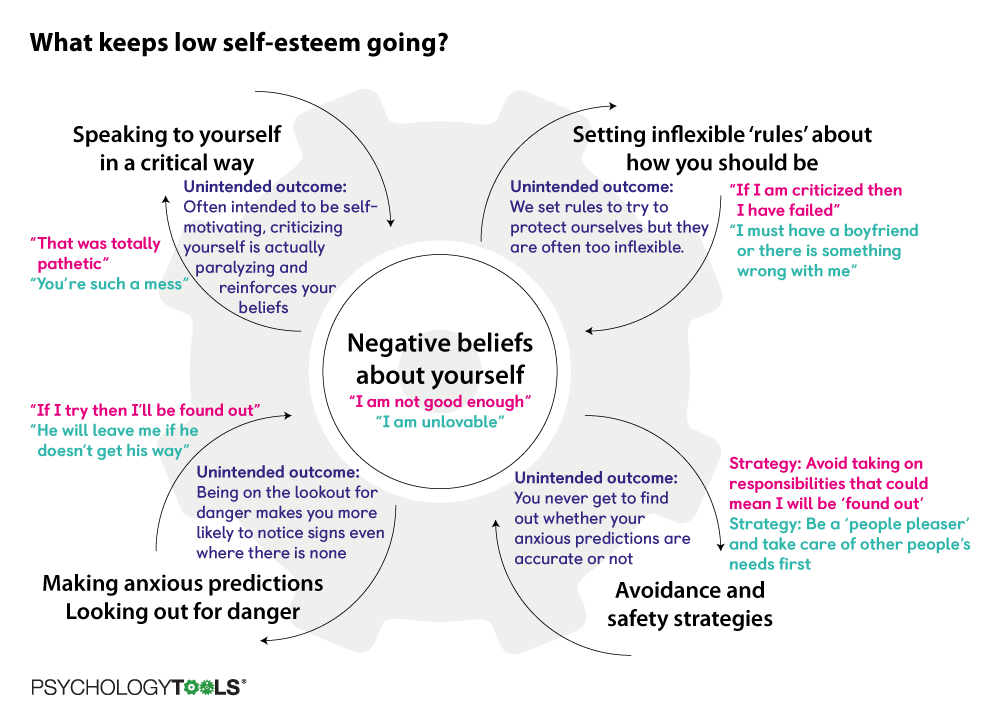Do not let your emotions control you
Why You Really Need to Stop Letting Your Emotions Control You
We will do almost anything to avoid suffering.
Including abdicating responsibility, ignoring reality, blaming others or outsourcing the suffering to someone else. Emotions tend to drive our decisions, whether or not we acknowledge them. Fear, anger and shame are some of the most common emotional reactions we experience.
Fear convinces us to categorize the world as “us versus them” and “good versus evil.”
Anger says something is wrong and it must be changed—now. And of course, it’s the other person who’s wrong, not me.
Shame convinces us to diminish the real concerns of others and ostracize them for thinking or acting differently.
None of those sound like a wholehearted, mindfully engaged way to live.
Why “Terrified People Make Terrible Decisions”
In an interview with the On Being podcast, Elizabeth Gilbert said, “Terror and fear make you irresponsible. They make you not think very clearly, right? And they make you willing to do almost anything to get rid of that awful feeling. And we’ve seen people do that on the individual level, and we’ve seen cultures do that. And we’ve seen politicians who find ways to exploit terror and fear in order to get short-term power or sometimes long-term power. Because if you can figure out how to hold the reins of other people’s fear, then you can control them for a while.
And so one of the very most powerful ways to not end up being controlled by that is to remain more curious than you are afraid. I think any time in the community that there’s anybody who’s keeping their head, I think it’s a benefit to everyone around them. I think everything is contagious. Our fear is contagious, but our courage also is. And our courage makes other people be able to be more brave, and come out of their houses, and come out of their shells, and out of their fear.”
Fear, anger and shame are easy reactions. It’s easy for others to respond likewise. Emotions arise because that’s how our bodies work. It’s not inherently wrong to be afraid, to wonder if there’s something wrong with you or to get angry.
What matters is what we do with those signals from our bodies. How will we respond? Do those emotions have the final word, or do we channel them into something more constructive? Do we measure them up against the reality of the situation? Do we let others speak to the credibility of those emotions, or maybe how we’re partly responsible sometimes?
Reframing Emotions, Not Ignoring Them
Like we avoid suffering, we sometimes avoid our real emotions because of what they’re saying to us: Something drastically needs attention. Instead of ignoring those emotions, blaming others, repressing our feelings, whitewashing our painful memories and the emotional baggage that comes with them, we can address things in a new way.
See Also
Emotions from our pasts threaten to limit our relationships, faith, work and daily choices. We keep chasing those same feelings even if they’re remnants of the past. Those tastes of glory keep us going back to the same sources of affirmation, or the memories of pain keep us locked up and guarded against people who remind us of someone who hurt us earlier in life. When we operate out of those emotions, we lose touch with our present ones. We trade the past we cannot change for the present we can, but we end up losing out on both if we don’t snap back to reality. Author Ben Arment summed it up like this: “You can view the bad things in your life as either tragedy or trajectory.’”
When we operate out of those emotions, we lose touch with our present ones. We trade the past we cannot change for the present we can, but we end up losing out on both if we don’t snap back to reality. Author Ben Arment summed it up like this: “You can view the bad things in your life as either tragedy or trajectory.’”
We can keep returning to those emotions and memories, but reframe them to help us make progress. They don’t control or define us, but they were simply part of our life at that time. We’re on a new path now, moving forward, making better decisions, rolling with the punches, learning to grow in a life full of variables.
What does it look like for us to be brave and curious when we’d normally resort to fear, anger or shame?
It’s a tall order, but I’m going to try to remain curious and open-minded instead of defensive and reactive. Will you join me?
This article was adapted from johnweirick.com. Used with permission.
John Weirick
is a writer in Greenville, South Carolina, and is the author of The Variable Life: Finding Clarity and Confidence in a World of Choices, from which this article is adapted.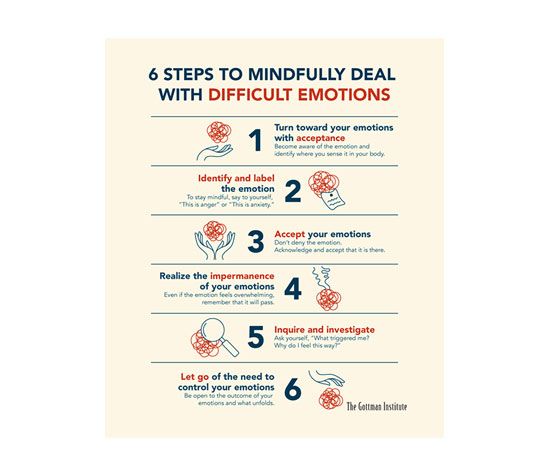 Visit thevariablelife.com to find more.
Visit thevariablelife.com to find more.
Why You Need To Stop Controlling Your Emotions (And What To Do Instead)
Do you believe that controlling your emotions is a virtue?
Many people think it’s only acceptable for children to cry, laugh out loud, openly show disgust or anger. They’re kids — they don’t know any better, right?
But if you want to consider yourself a grown-up, you need to be resilient. The thing is, many people confuse emotional resilience with trying to control their feelings.
I also used to believe in that approach. If I could remain calm through adversity, I thought, this was a sign of strength. The problem was, this usually meant I ignored my feelings.
This undermined many areas of my life — but the one that suffered most was my romantic relationships.
I often felt anxious and insecure next to my partners. But, I worried that mentioning it might destroy our bond. Instead of acknowledging and digesting my feelings, I just pretended I felt fine.
I thought I was “controlling my emotions.” In reality, I was denying them, being dishonest both with myself and my partners.
It took me a long time I can say I finally say I learned my lesson. I don’t intend to control my emotions anymore. Instead, I aim for managing how I respond to the feelings I have.
The Difference Between Controlling Your Emotions and Your Responses
You can’t choose which emotions you experience. You can, however, decide what you do with them.
Emotions are triggered by your unconscious mind, based on the experiences you had in the past. When something reminds you of a memory, your mind elicits the emotional response associated with it.
This process happens very quickly and without your conscious will. Your rational mind — located in your brain’s neocortex — isn’t involved in this. That’s because it’s the newest and most complex part of the brain that doesn’t work as fast as the systems responsible for emotions: the reptilian and the limbic brain.
[DISCLAIMER: The division to neocortex, limbic brain and reptilian brain is a big simplification, used for the purpose of explaining mechanics behind your emotions. It isn’t an accurate description of the human brain’s physical structure.]
The reptilian and limbic parts of the brain are designed to detect threats based on past experiences. When they do, an uncomfortable emotion arises. However, it takes the neocortex about half a second longer to catch up and process what’s going on.
Richard Barrett, the author of Evolutionary Coaching, explains it this way:
“Whenever your limiting fear-based beliefs trigger an emotional reaction, the neo-cortex cannot be accessed. We cannot bring reason to bear on a situation when we are in the midst of an emotional upset. We become unreasonable because we lose our ability to reason. Only when the fear-based reaction has subsided and the emotions dissipated are we able to access our neo-cortex again.”
This shows why controlling your emotions doesn’t work. When you’re in the middle of an emotional upset, no reasoning that “you shouldn’t feel this way” is possible. That’s because the neocortex (the part of the brain qualified to do that such reasoning) is “offline.”
Knowing this, you have three possible courses of action you can take when a challenging emotion comes up:
1. Reacting
In this scenario, you’re overridden by your emotions. You react to them on autopilot, according to patterns from the past. For example, you feel angry — therefore you yell at your partner. Or, you feel insecure — therefore you withdraw. You default to automatic behaviors that aren’t serving you.
2. Controlling
When you try to control your feelings, you end up suppressing them. As I explained, there’s no way of preventing emotions once the mechanism triggering them is on. When you believe you’re “controlling your emotions,” it usually means you’re doing mental gymnastics to convince yourself everything’s “fine.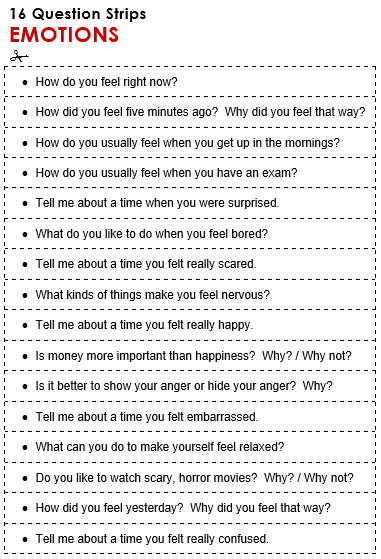 ” This is what I was doing with my romantic partners whenever I felt insecure next to them.
” This is what I was doing with my romantic partners whenever I felt insecure next to them.
3. Responding
Finally, there’s the third option. By far, I found this to be the healthiest way to deal with my emotions. Responding means that you fully acknowledge how you feel — but, you don’t react to it. Instead, you pause before you elicit any behavior. You give your neocortex a chance to step in and help you make a responsible decision.
Consciously responding to difficult feelings is what emotional resilience means. The idea isn’t to prevent the emotion itself. Rather, it’s preventing the activation of your automatic reaction that matters.
It’s pretty clear why reacting to your emotions isn’t the best course of action. It pushes you to act out of fear-based beliefs and cause drama. Later on, you may feel embarrassed or guilty because of your behavior.
However, controlling your emotions sometimes seems like a good idea.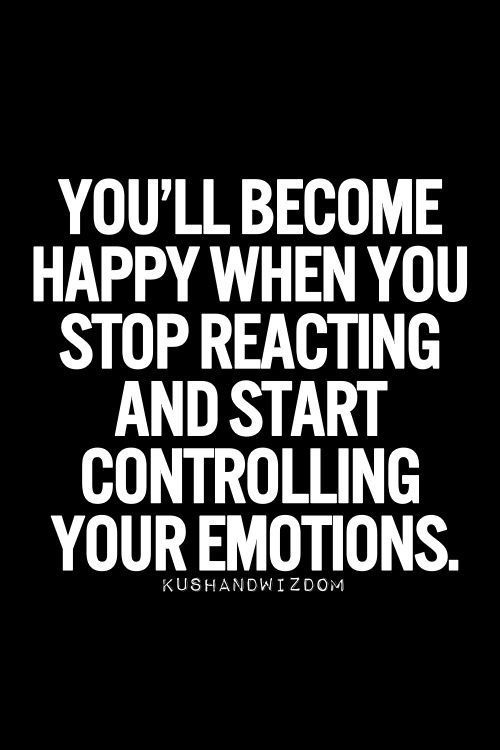 You pretend that “you’re fine” because you don’t want to complicate things. You dismiss your feelings as silly and tell yourself to “just drop it” and “move on.”
You pretend that “you’re fine” because you don’t want to complicate things. You dismiss your feelings as silly and tell yourself to “just drop it” and “move on.”
These strategies only work short-term — if at all. Let’s see why controlling your emotions usually does more harm than good.
Controlling Your Emotions Makes You Weaker, Not Stronger
One of the intimate relationships I had was particularly challenging. My partner was 12 years older than me, with pretty strong patriarchal opinions.
I often felt insecure around him but at the time, I didn’t understand why. On the surface, the relationship was perfect. My friends and family thought that as well. So, for a long time, I was denying my insecurity to keep things between us smooth and pretty.
I told myself I needed to be strong. Our relationship was long-distance and this was a challenge already. I didn’t want to add my emotional burden to it. I thought that by “controlling my emotions,” I was displaying maturity and resilience.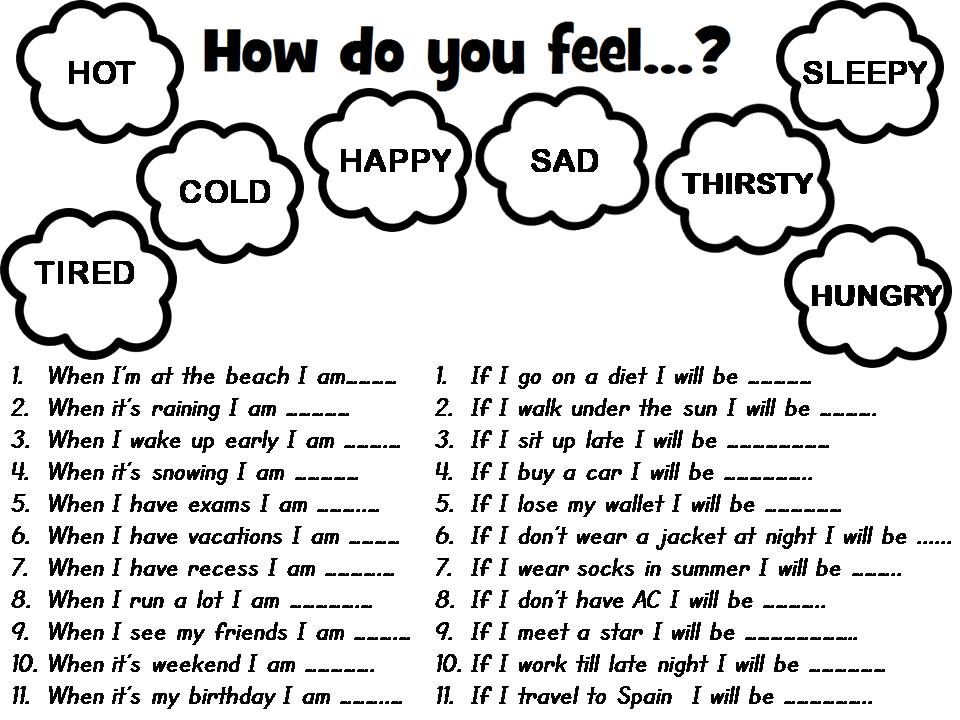
In reality, controlling your emotions makes you weaker, not stronger. That’s because it’s a huge energy expense. When you aspire to be in control of your feelings, you find yourself doing things like:
- Putting a smile on your face when all you want to do is cry.
- Pretending you’re interested in what someone’s saying instead of sharing how it makes you feel.
- Distracting yourself with meaningless activities that don’t bring you joy.
- Numbing yourself with alcohol, drugs, food or another way of self-medicating.
These kinds of behaviors are energetically draining. They disguise themselves as strategies to help you “stay strong” — but often, they leave you feeling even more exhausted.
Another thing is that if you don’t consciously process your feelings, you drag them with you into future experiences. Sometimes, this means that the upset you felt in the morning will resurface later in the afternoon. Other times, “unfinished” emotions may compound and disrupt your life in the years to come.
Why’s that? Because, at the basic level, all emotions correspond to bodily sensations. When you suppress them, they get stuck in your body in the form of trapped energy.
Then, those unacknowledged emotions chase you until you learn how to release them.
Brianna Wiest explains it in detail:
“Emotions are physical experiences. We flush our bodies of everything, and regularly so. We defecate, we sweat, we cry, we literally shed our entire skin once a month. Feelings are no different, they are experiences that must likewise be released.
Emotions, when not felt, become embodied. They become literally stuck in your body. This is because they have something called a motor component, which means that the minute they begin — before you can suppress or ignore them — they create a micro-muscular activation. Our bodies respond instantaneously.
We often store pain and tension in the area of the body where an expression began, but was never fully materialized.
This is because, neurologically speaking, the part of your brain that regulates emotions, the anterior cingulate, is next to the premotor area, which means that when a feeling is processed, it immediately begins to generate a physical, bodied response. The premotor area connects to the motor cortex, and then spans back into the specific muscles that are going to express the emotion.”
Controlling your emotions doesn’t allow you to release them the way your body is supposed to do. This causes you to re-experience stuck emotions over and over. You have to go through way more pain and suffering than necessary.
Knowing that controlling your emotions isn’t effective, what should you do instead? What does a healthy way of managing your feelings look like?
Emotional Resilience, Not Emotional Control
The fact that I was resisting my feelings in intimate relationships led to their disruption. By trying to pretend I was fine, I sabotaged myself and my relationships.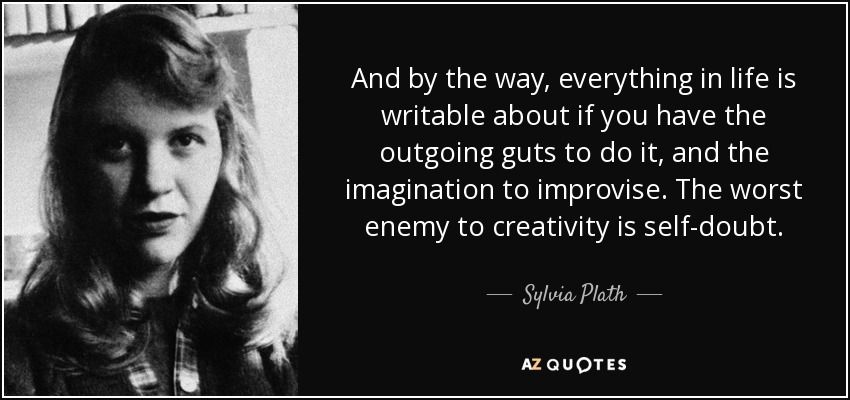
As I realized what I was doing, I started looking for a healthier way of dealing with my emotions.
This was when I discovered mindfulness and meditation. One of the first things I learned was to take my attention off the person that was “causing” me to feel insecure. Instead, I turned inward to take a closer look at what was really going on.
In other words, instead of controlling my emotions, I went on a quest to familiarize myself with them. Taking responsibility for my feelings of insecurity and anxiety (the consistent disruptions of my romantic relationships) was the first step to prevent them from poisoning my life.
What happens in my body when I enter an emotional upset? And what happens in my mind? What are the fear-based beliefs from the past that are driving those emotions?
I started asking such questions whenever I felt the familiar knot in my throat and tightness in my chest.
The idea isn’t to be able to answer those questions immediately.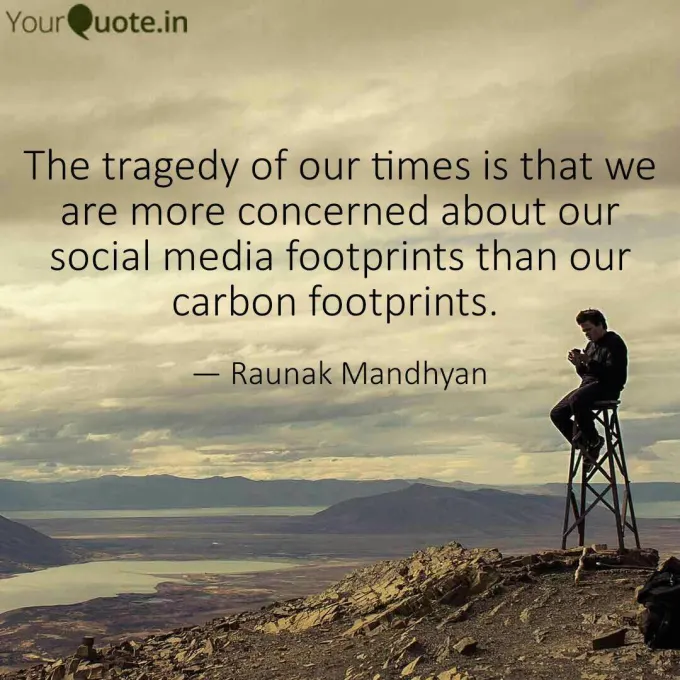 Rather, it’s about creating a moment of pause between the feeling and what you do next. This is the key to emotional resilience:
Rather, it’s about creating a moment of pause between the feeling and what you do next. This is the key to emotional resilience:
Feeling the emotion without reacting for long enough to give your neocortex a chance to catch up.
In a way, it’s the opposite of controlling your emotions. Instead, you need to feel them without resisting and be honest with yourself. This won’t necessarily change how you feel. But, if you do it consistently, it’ll help you transform the way you respond to your emotions.
The core of that transformation is to take action as the person you are today, rather than based on past memories. Here are a few techniques you can use to learn that.
1. Pause
If you don’t remember anything else from this article, remember this one word: pause. By pausing to take a few breaths before you react to your emotions, you disrupt the automatic reaction derived from old beliefs.
Even if your behavior won’t change immediately, be pausing for a few seconds, you give your neocortex a chance to participate in the process.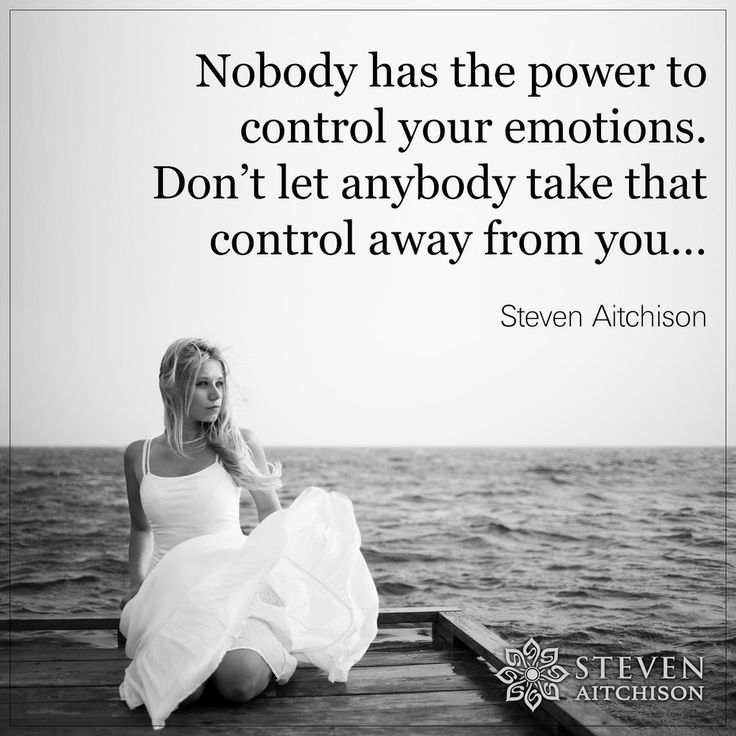 Over time, this will bring more awareness of what’s going on when you get emotionally triggered. You’ll gain clarity about how to respond and drop the reaction.
Over time, this will bring more awareness of what’s going on when you get emotionally triggered. You’ll gain clarity about how to respond and drop the reaction.
2. Name the feeling
By giving names to your emotions, you frame your experience in a new way. Whenever you name something, you make it clear that this thing isn’t you. This helps you stop identifying with your feelings and treat them as passing experiences instead.
On top of that, if you name your feelings often, you’ll start recognizing patterns. You’ll be able to say to yourself: “Oh, I know this! That’s insecurity — I’ve felt that before.” By getting familiar with your feelings, you’ll realize you’ve dealt with them in the past. That gives you confidence that you can handle them this time around, too.
3. Become aware of your surroundings
Practicing mindfulness of your physical surroundings can help when your feelings seem unbearable. When you notice thoughts such as “This is too hard, I can’t take it anymore” — shift your attention to your sensations.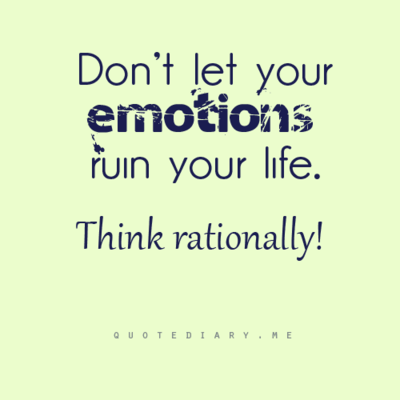
Become aware of the furniture in the room. Investigate the texture of the clothes you’re wearing. Take a moment to tune into the sounds. Becoming aware of the tangible material reality helps you anchor yourself in where you are right now.
Thanks to that, you detach from the fear-driven stories arising in your mind — e.g. that it’s all the other person’s fault, or that you’re completely worthless. You realize that, right here, right now, you’re safe and nothing horrible is happening.
4. Shift your attention
When you’re deep in our feelings, you may give yourself more pain than necessary. Instead of simply experiencing the emotion and moving on, you drag it into the next moment. And then, the next. Sometimes, you let it define the hours or even days to come.
When this happens, remind yourself that you’re free to shift your attention to the next thing. The fact that you felt angry a minute ago doesn’t mean you have to hold a grudge right now. This isn’t about denying your feelings. Rather, it’s reminding yourself that every moment is an opportunity to experience something new.
Rather, it’s reminding yourself that every moment is an opportunity to experience something new.
5. Use reminders
Emotional upsets are a part of life. You won’t be able to feel “good” or “fine” all the time.
Knowing this, you can prepare in advance — and have helpful reminders helping you through the darkest moments.
One of my favorite “mantras” is reminding myself that whatever I feel, it’s a temporary state. Not even the most horrible feeling lasts forever. When I manage to remember this when I’m at my lowest, I move through the experience more gracefully — and without denying my emotions.
Find reminders, quotes or mantras that resonate with you — and have them ready when you need them. You can make up your own, or use available resources featuring inspirational quotes and aphorisms - for example, the books from the Big Self School book store.
You Don’t Need To Control Your Emotions To Live a Good Life
Self-control and resilience are crucial skills. You need them to manage your feelings, deal with adversity and grow by overcoming obstacles — instead of allowing them to hold you back.
However, emotional resilience isn’t the same as controlling your emotions. Nor is it about feeling calm all the time. The purpose of life isn’t to feel “good.” Rather, it’s to refine ways of conducting yourself so that you can grow and find meaning.
To do this, becoming familiar with all emotions is key. When you allow yourself to feel the whole spectrum of feelings — rage, sadness, excitement, anxiety, peacefulness, jealousy and others — you prepare yourself for anything and everything.
Because you know you can handle all emotional states, you’re not running away from any experiences. You’re open to possibilities and this enriches your life.
I still haven’t met a romantic partner with whom I wouldn’t feel anxious or insecure from time to time. But at least, I no longer allow those feelings to hold me back. Even when they arise, I don’t see them as threatening.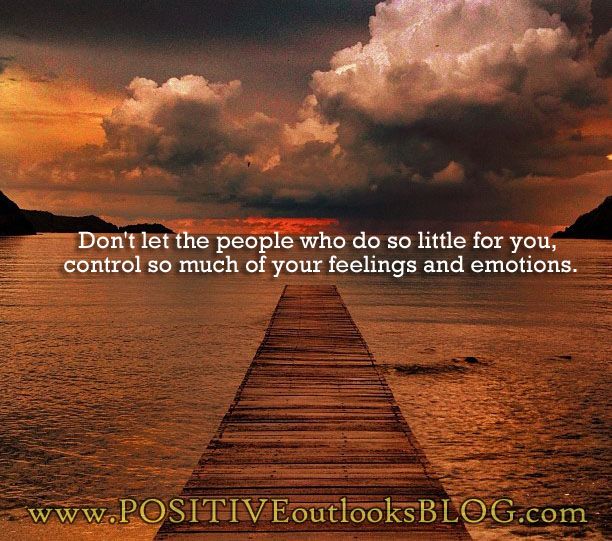 I don’t have to control them or allow them to control me.
I don’t have to control them or allow them to control me.
Rather, I can just let them be, without making fear-based assumptions. I can engage with different people, simply observing how that makes me feel. I don’t run away and hide as soon as discomfort arises. Instead, I become curious about it.
In short, fear isn’t the driving force of my life anymore. This is a huge transformation — and you can experience it, too. All it takes is to change your relationship with emotions instead of controlling them.
At Big Self School, we believe that outer impact starts with inner growth. To get advice and inspiration for living from the inside out, sign up for our newsletter.
Psychologist's recommendations
Dear graduate!
We congratulate you on your graduation from our educational institution. A new period has come in your life - this is the stage of independent decision-making, responsibility for your actions.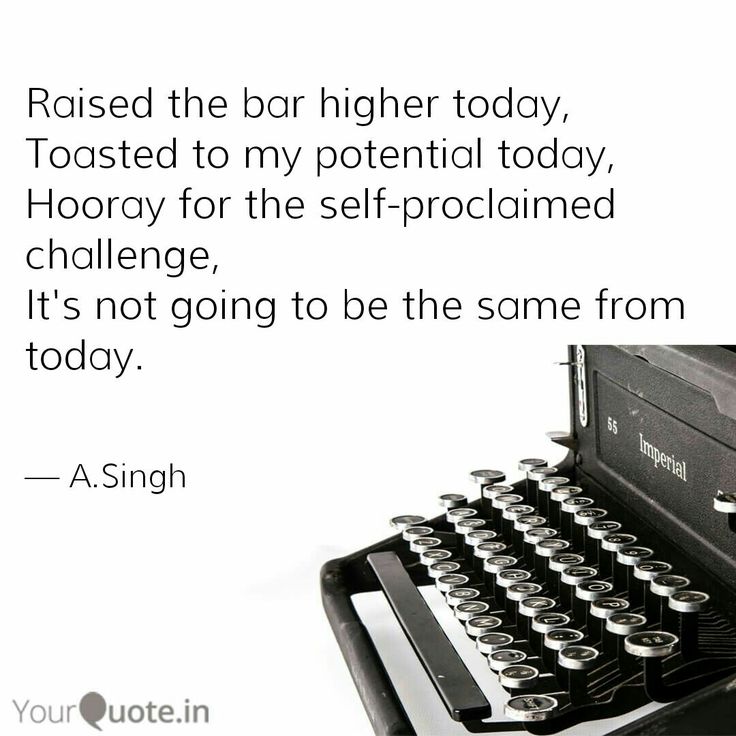 You are given a great opportunity to express yourself and meet new interesting people. Perhaps the unknown and uncertainty make you anxious. Believe me: all worries, anxieties will pass with time. Most often, anxiety manifests itself due to the fact that a person is pre-configured for failure, does not believe in himself and cannot correctly assess the situation. We hope that our advice will help you tune in to success, navigate different life situations and find a solution to any problem. nine0005
You are given a great opportunity to express yourself and meet new interesting people. Perhaps the unknown and uncertainty make you anxious. Believe me: all worries, anxieties will pass with time. Most often, anxiety manifests itself due to the fact that a person is pre-configured for failure, does not believe in himself and cannot correctly assess the situation. We hope that our advice will help you tune in to success, navigate different life situations and find a solution to any problem. nine0005
- Positive thoughts. The way we think affects our lives. Get rid of negative thoughts, stop expecting trouble. Build a positive attitude towards life. Rejoice in every moment of life. Speak positive attitudes. For example: “I love life”, “I am confident in my actions”, “I am strong in spirit”, etc. Remember, you are a unique and inimitable person, worthy of recognition, respect and love. Always be yourself. Develop positive qualities in yourself, work on your weaknesses of character daily.
 Try to form your own view of life situations. Don't be afraid to express your point of view. A person who has no worldview, beliefs easily falls under the influence of other people .
Try to form your own view of life situations. Don't be afraid to express your point of view. A person who has no worldview, beliefs easily falls under the influence of other people . - Manage your behavior . Don't let your emotions overwhelm your mind. Always try to think about the situation and make a reasonable decision. In life, we have to experience unpleasant experiences: anger, resentment, irritation and anger, strong excitement. It is very important to learn how to manage these feelings, to regulate your emotional state. Form strong-willed qualities in yourself, be responsible for your actions, independent.v Be brave and determined . Set a goal and achieve it. This will allow you to believe in yourself and you will be respected by other people. Try to be realistic about your abilities. The goal should correspond to the life situation and your capabilities. Well, if you have hobbies, hobbies.
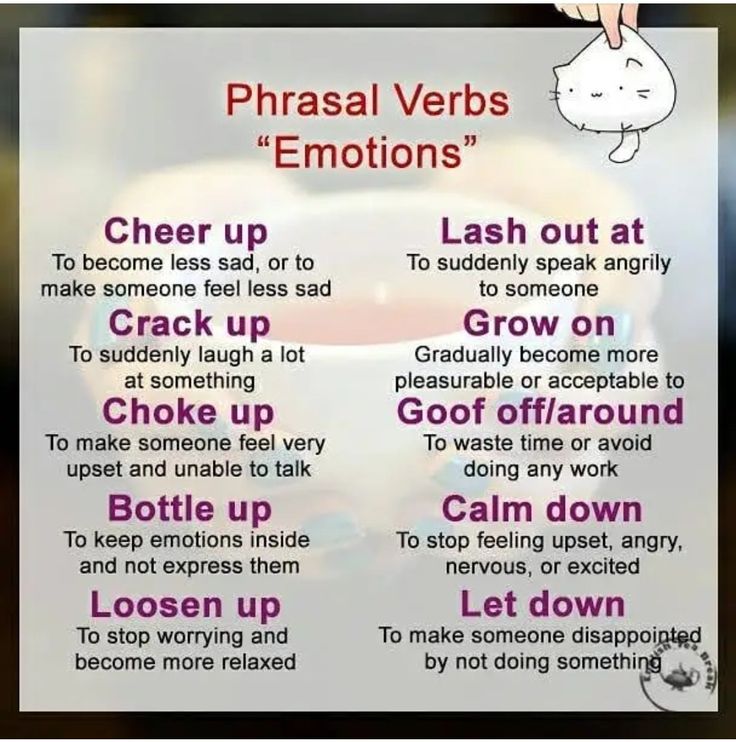
- Solve problems as they arise. Life is a test of your “strength”. The situation must be analyzed and possible solutions to the problem found. There is a solution to any problem, although its search takes a lot of time and effort and brings a lot of grief. In a difficult situation, seek advice. nine0010 Don't be afraid to make mistakes. A person learns from his mistakes. Everyone has resentment and grief, even outstanding, great people. Or maybe that's why they became great because they managed to overcome troubles? No one is immune from mistakes, but almost any mistake is fixable. Remember the saying more often: “He who does not make mistakes does not learn anything.”
- If experiences are too burdensome for you, then you should share it with someone who will listen attentively and give you advice. It's good if you have a friend or a person who is ready to support you.
 In addition, qualified assistance will always be provided to you in the social and psychological services of the city (see list). nine0026
In addition, qualified assistance will always be provided to you in the social and psychological services of the city (see list). nine0026 - Know how to communicate with people. Defend your opinion not aggressively, learn to negotiate. A good tone and kindness will help you build relationships with people. Grassman said: "If you want respect, don't start by screaming."
Every day is a gift of fate, meet it with a smile!
A new day begins! What you choose,
depends not only on today, but your whole life. nine0013
So, the choice is yours!
The teaching staff of KGBPOU "AASK" wishes you confidence in your abilities
and success in all your endeavors!
 Everyone invents. And if you are not ready to invent, then do not worry, do what you can with what you have, and the meaning will come by itself. There is only one meaning - to solve the problems that arise in front of you at this moment. And, if your RAM is overloaded with YouTube views from all over the world, conspiracies of Freemasons and the meaning of life, then it simply will not be enough to solve really important tasks. Step by step, task by task. Step by step, task by task.
Everyone invents. And if you are not ready to invent, then do not worry, do what you can with what you have, and the meaning will come by itself. There is only one meaning - to solve the problems that arise in front of you at this moment. And, if your RAM is overloaded with YouTube views from all over the world, conspiracies of Freemasons and the meaning of life, then it simply will not be enough to solve really important tasks. Step by step, task by task. Step by step, task by task. 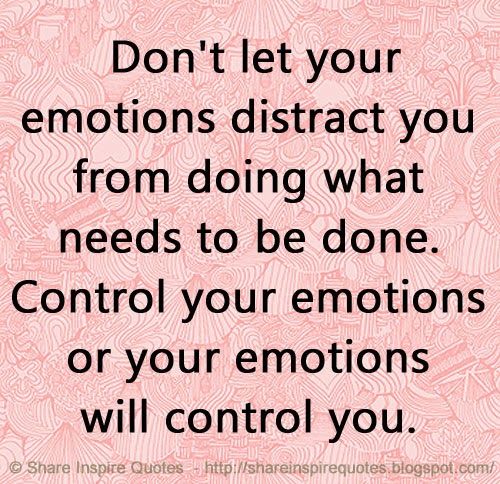 Feelings change your life like day and night. You can be happy, sad, angry, love and hate the world, yourself, people. And these changes of your feelings change like the weather. Throughout the year, month, week and even day. How can you achieve anything at all when now you are ready to conquer mountains, and the world is clear and simple, and in a moment you are just a grain of sand at the foot of this mountain. And all you want to do is hope you don't get noticed. Up and down, like a swing, our feelings rage inside us. We get used to and become their hostages. Is it possible to talk about freedom, being a hostage of feelings? We celebrate feelings. We glorify love, joy, euphoria, happiness. And we hate sadness, longing, sadness and fear. We want only one thing - to turn on the euphoria for a pause and freeze in it forever, but everything turns out completely differently. As if someone paused hopelessness, and despair, and the inability to change something. And we hang in this feeling deeper and deeper.
Feelings change your life like day and night. You can be happy, sad, angry, love and hate the world, yourself, people. And these changes of your feelings change like the weather. Throughout the year, month, week and even day. How can you achieve anything at all when now you are ready to conquer mountains, and the world is clear and simple, and in a moment you are just a grain of sand at the foot of this mountain. And all you want to do is hope you don't get noticed. Up and down, like a swing, our feelings rage inside us. We get used to and become their hostages. Is it possible to talk about freedom, being a hostage of feelings? We celebrate feelings. We glorify love, joy, euphoria, happiness. And we hate sadness, longing, sadness and fear. We want only one thing - to turn on the euphoria for a pause and freeze in it forever, but everything turns out completely differently. As if someone paused hopelessness, and despair, and the inability to change something. And we hang in this feeling deeper and deeper.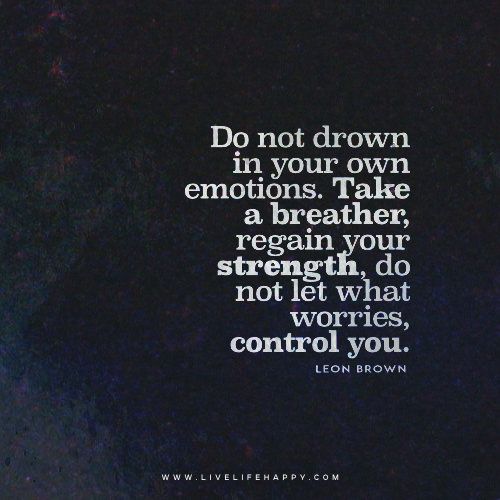 Until we get used to it, and we can only remember those days when we could still feel something more. Feelings arise spontaneously and we want to express them. We take a guitar, a person, turn on a video, put a smiley in the desire to share it with others. And then, when dusk falls, we again seek salvation in others, trying to feed on at least a little of their life energy, so as not to remain in silence, alone with our thoughts and the desire to put a bullet in our head. Day replaces night, joy replaces sadness - an endless spiral of sensations goes with us all our lives. Is it freedom? Is it possible to comprehend all the pain of one's own existence? Is it possible to fully experience all the joy of this world? The answer lies within each of us. We celebrate feelings: movies, books, emoticons, messages. We rush in a whirlpool of sensations, like a kaleidoscope, in the hands of a child. Today we are surrounded by friends, and tomorrow we suffer alone. Is there a way out? There is. And there is only one way out of this: we cannot control feelings, but we can accept them.
Until we get used to it, and we can only remember those days when we could still feel something more. Feelings arise spontaneously and we want to express them. We take a guitar, a person, turn on a video, put a smiley in the desire to share it with others. And then, when dusk falls, we again seek salvation in others, trying to feed on at least a little of their life energy, so as not to remain in silence, alone with our thoughts and the desire to put a bullet in our head. Day replaces night, joy replaces sadness - an endless spiral of sensations goes with us all our lives. Is it freedom? Is it possible to comprehend all the pain of one's own existence? Is it possible to fully experience all the joy of this world? The answer lies within each of us. We celebrate feelings: movies, books, emoticons, messages. We rush in a whirlpool of sensations, like a kaleidoscope, in the hands of a child. Today we are surrounded by friends, and tomorrow we suffer alone. Is there a way out? There is. And there is only one way out of this: we cannot control feelings, but we can accept them.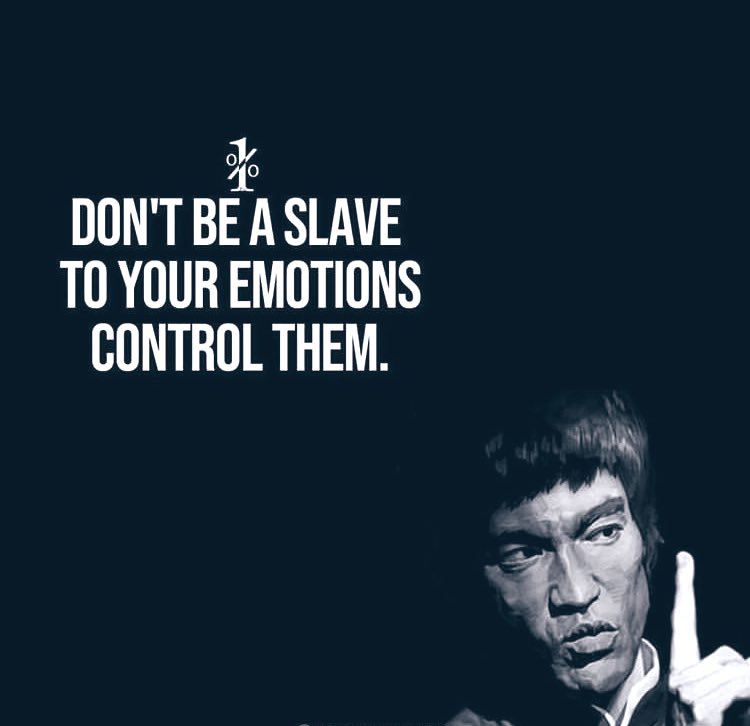 We can accept ourselves as a kaleidoscope of feelings. We can accept ourselves as a storehouse of an endless stream of emotions, taken to the very peak with the help of a drug and descending into the very abyss of loneliness. But all this we can only accept. Accept the fact that it won't change. Accept the fact that the world does not look the way we are told, but the way we interpret it ourselves. And our interpretation of the world directly depends on what we feel at this very moment. Giving in to our thoughts, we begin to seek salvation in religion, in psychology, in self-programming techniques, but every time, no matter how hard we try, pain comes and joy comes, at the very moment when we do not expect it. nine0005
We can accept ourselves as a kaleidoscope of feelings. We can accept ourselves as a storehouse of an endless stream of emotions, taken to the very peak with the help of a drug and descending into the very abyss of loneliness. But all this we can only accept. Accept the fact that it won't change. Accept the fact that the world does not look the way we are told, but the way we interpret it ourselves. And our interpretation of the world directly depends on what we feel at this very moment. Giving in to our thoughts, we begin to seek salvation in religion, in psychology, in self-programming techniques, but every time, no matter how hard we try, pain comes and joy comes, at the very moment when we do not expect it. nine0005 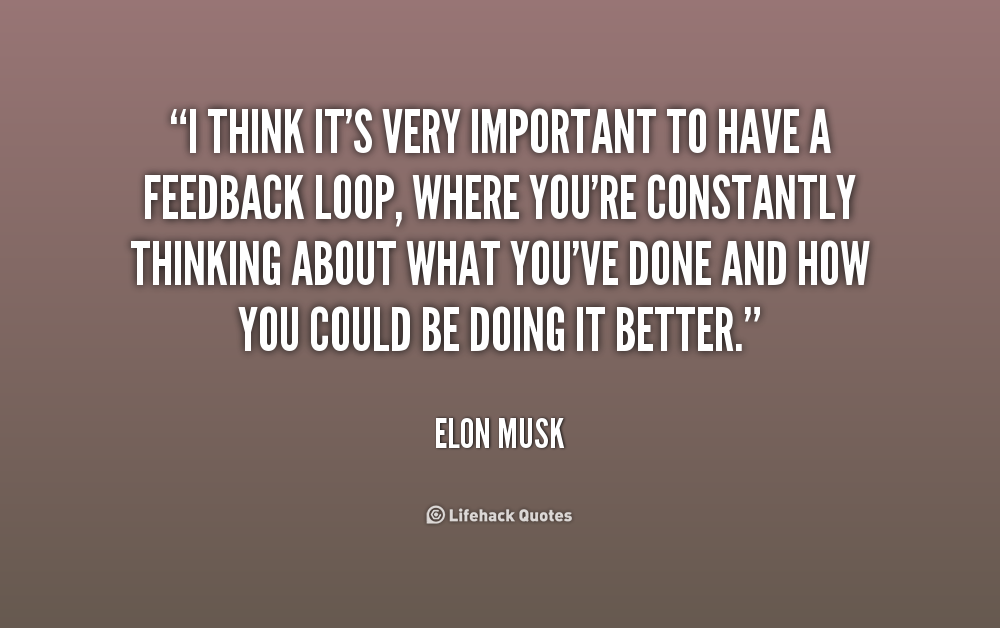 To achieve what is possible only when the understanding comes that feelings and actions can be unrelated. You can easily do what you have in mind, no matter how you feel about it. Anger, sadness and pain will no longer become an obstacle to the goal if you simply do not take them into account. Just a step towards accepting that feelings are the body, and you are something more than the body, gives freedom and opens the door to self-mastery. nine0005
To achieve what is possible only when the understanding comes that feelings and actions can be unrelated. You can easily do what you have in mind, no matter how you feel about it. Anger, sadness and pain will no longer become an obstacle to the goal if you simply do not take them into account. Just a step towards accepting that feelings are the body, and you are something more than the body, gives freedom and opens the door to self-mastery. nine0005 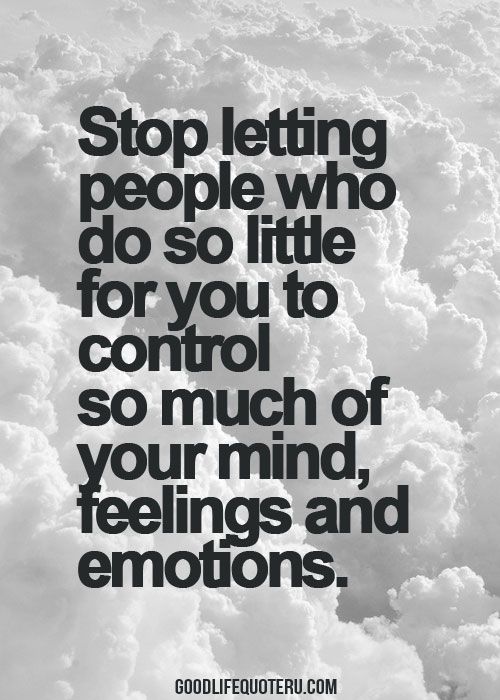 It's not all of you, but only that part. And that part of you you don't like. But why don't you like her? Because everyone around says - thoughts are positive! Radiate success and smile. Even the powerful of this world have such conditions, and it is pointless to fight it. How can you fight with yourself? Just take it for granted. Accept all your states and use them for your own purposes. Even negativity is energy! Accept it as part of yourself. Stop the flow of endless thoughts and dive inside yourself. Feel your anger, pain and despair inside you. Find a place within where it comes from and dive into it. Dive in and accept this state as yourself. Tell yourself yes, this is my state right now and there is nothing I can do about it, but I can use it. Any state, good or bad, you can use as energy to move on. Accept your pain, do not hide it and do not try to drown it out. Let yourself enjoy this feeling to the fullest. Feel it. Dive into it. Now take it all and direct it towards the actions that are required at the moment.
It's not all of you, but only that part. And that part of you you don't like. But why don't you like her? Because everyone around says - thoughts are positive! Radiate success and smile. Even the powerful of this world have such conditions, and it is pointless to fight it. How can you fight with yourself? Just take it for granted. Accept all your states and use them for your own purposes. Even negativity is energy! Accept it as part of yourself. Stop the flow of endless thoughts and dive inside yourself. Feel your anger, pain and despair inside you. Find a place within where it comes from and dive into it. Dive in and accept this state as yourself. Tell yourself yes, this is my state right now and there is nothing I can do about it, but I can use it. Any state, good or bad, you can use as energy to move on. Accept your pain, do not hide it and do not try to drown it out. Let yourself enjoy this feeling to the fullest. Feel it. Dive into it. Now take it all and direct it towards the actions that are required at the moment. In an attempt to escape from pain, we deceive ourselves more and more, but do not learn to live with it. The pain will return more than once, and we must learn to act in spite of this pain. This is the only way to achieve your goals. Tell yourself - this is my pain, and part of me, and I accept myself with this, with this pain, with these sensations. It's not bad or good, it's just emotions, and emotions are strength, energy, and I can direct this energy, but not to fight with myself, but to move forward. nine0005
In an attempt to escape from pain, we deceive ourselves more and more, but do not learn to live with it. The pain will return more than once, and we must learn to act in spite of this pain. This is the only way to achieve your goals. Tell yourself - this is my pain, and part of me, and I accept myself with this, with this pain, with these sensations. It's not bad or good, it's just emotions, and emotions are strength, energy, and I can direct this energy, but not to fight with myself, but to move forward. nine0005 